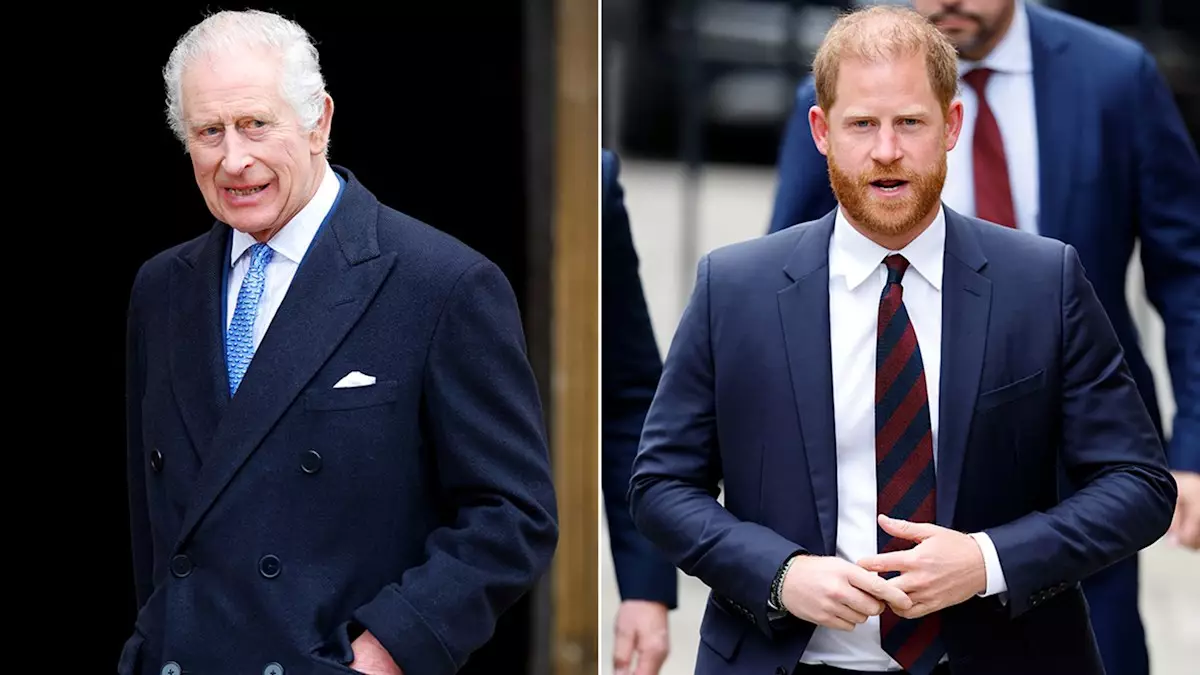The recent developments regarding Prince Harry’s ongoing security disputes with the British royal family highlight a complex web of familial tensions, public expectations, and constitutional protocols. On a Friday afternoon, King Charles and Queen Camilla issued a statement following Harry’s unsuccessful appeal regarding his security arrangements in the United Kingdom. This has reignited discussions surrounding the relationship between the Duke of Sussex and the rest of his royal family, most notably his father. Prince Harry’s assertion during a BBC interview that his father “had full control” over the situation paints a stark picture of a family mired in conflict, yet yearning for some semblance of reconciliation.
Buckingham Palace’s response was systematic and measured, emphasizing that the courts had examined these issues meticulously and rendered consistent conclusions. While some might view this as a protective stance, it also underscores the royal family’s vulnerability to scrutiny. The King appears to be navigating a precarious route—he must maintain the integrity of the monarchy while grappling with family issues that play out on a global stage. Therein lies the irony; the very institution designed to symbolize stability is seen as a backdrop for a familial rift that is anything but stable.
The Significance of Charles and Camilla’s Upcoming Trip to Canada
In the midst of this familial drama, Buckingham Palace announced Charles and Camilla’s scheduled trip to Canada from May 26 to 27. This visit will notably coincide with the state opening of the Parliament of Canada, a duty that asserts the King’s role on the international stage. Coming shortly after a state visit to Italy—which concluded with a memorable meeting with Pope Francis—this trip signifies a continued commitment to diplomatic relations. However, it also raises questions about the importance of face-to-face interactions amid ongoing familial discord at home.
The cancellation of a previous visit to Canada—originally planned for the year prior due to King Charles’s health concerns—adds layers to this melancholy narrative. The shadow of illness, especially after the monarch’s diagnosis with cancer, looms large. Such a backdrop amplifies the urgency of reconciliation, not just in terms of family dynamics but also when considering the King’s advancing age and the finite nature of life itself.
Prince Harry’s Yearnings for Reconciliation
In contrast to the royal couple’s scheduled engagements, the heart of Prince Harry’s recent remarks reveals a profound desire for reconciliation. The Duke articulated a vision of healing, expressing that there is “no point in continuing to fight anymore,” underscoring the vexing reality of family relationships marked by unresolved grievances. His acknowledgment of the complex fallout between himself and his family—including his brother, Prince William—further emphasizes the depth of this familial rift. It is profound that Harry, despite the deep-seated issues, still holds hope for a balance between security and familial love.
Yet Harry’s words also reveal a sad truth: reconciliation is not solely within his control. The Duke’s resignation to the fact that familial bonds might remain strained despite his earnest intentions serves as a poignant reminder of the complexities inherent in human relationships. The implications of this struggle for connection are amplified, as they reflect broader societal themes of familial expectation, responsibility, and the yearning for acceptance.
The Broader Social Context
The intense media scrutiny surrounding the royals inevitably invites public commentary. Many observers find themselves torn between fascination and empathy. On one hand, the relentless focus on family feuds offers a sensational narrative; on the other, it underscores an essential truth—that familial strife affects everyone, regardless of status. This public exposure can act as a double-edged sword, drawing individuals into a spectacle while simultaneously alienating them from deeper human connections.
Perhaps the true challenge lies in how these issues resonate with the public. As they unfold, the events surrounding the royal family reflect a collective experience of reconciliation, vulnerability, and the push-pull of familial loyalty against the backdrop of duty and spectacle. The royal saga continues to serve as a mirror, reflecting our values, conflicts, and the intricate and often painful journey toward healing and understanding within our own relationships.

